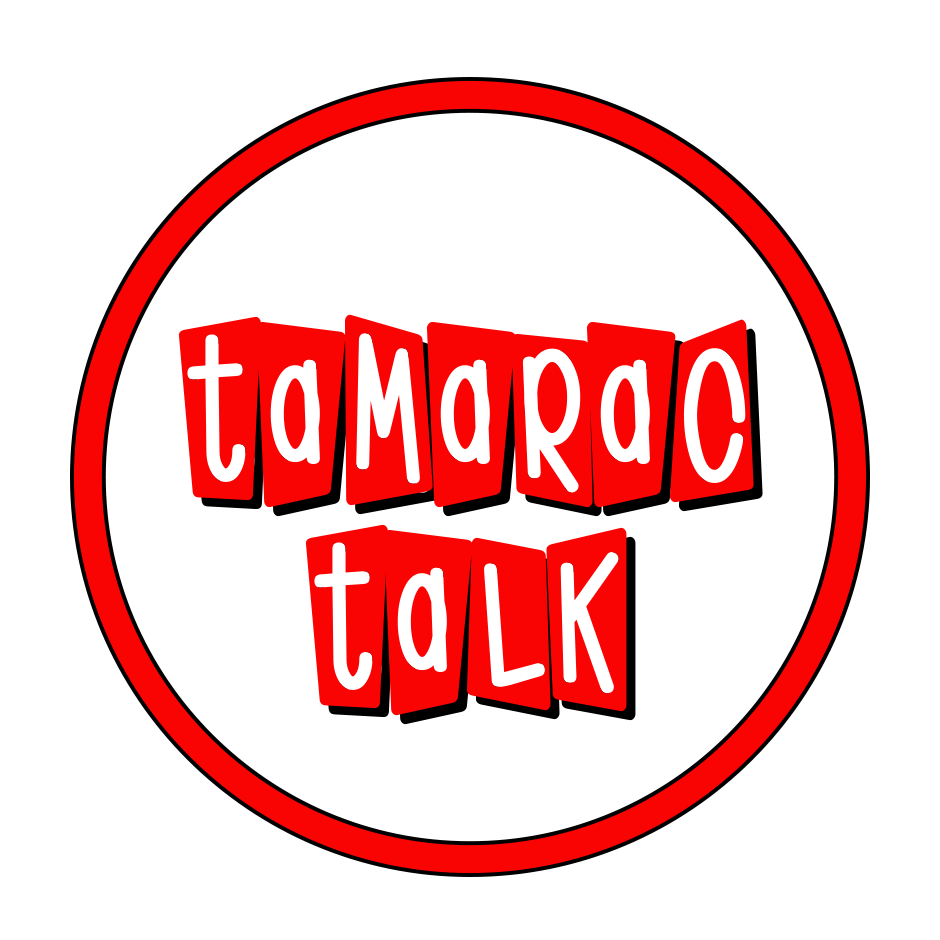In honor of the 70th anniversary of Auschwitz liberation Tamarac Talk shares the true story on an 84 year-old resident who found a way to keep himself and two friends alive as a 13 year-old in a Nazi concentration camp.
by Howard Melamed
I met a true human being. A man who once was a boy who has been through experiences that we will never know of living here in Coral Springs, Florida, where we are sheltered from atrocities that are unimaginable, and the only thing we can complain are traffic and the high price of things.
Sholom
Sholom, who wants his last name and the number tattooed on his arm by the murderous Nazi’s to remain a secret. The last “0” on the tattoo is hard to read on the inside of his forearm, the soft skin used to belong to a 13 year-old in 1943 living in the Carpathian mountains of what is now the border between the Czech Republic and the Ukraine. Here Sholom lived in a small town with his family. Today he lives in our town.
Happy as one would consider for a life of a peasant, Sholom had his parents and his brothers and sisters in hiding from the Nazi Germans who had not as of yet made their way into his neck of the woods, but everyone knew they would.
In 1943, Sholom’s family, his father, mother and two brothers were captured. They put his family and thousands of other Jews from his area onto trains fit for cattle and sent them to Auschwitz, the concentration camp in Southern Poland.
Auschwitz
Upon arrival, the German guards slid open the freight car, and started screaming at people to get out. They beat them over their heads with bats and whips and Sholom jumped from the car to the ground. The Germans immediately began segregating the Jews. Pregnant woman, like Sholom’s aunt were sent to the left along with his parents and brothers. That was the last time Sholom saw his family. They immediately marched them out and sent to them to the gas chambers where they were murdered and then incinerated in the ovens.
Sholom was sent to the right, to be paraded in front of Dr. Josef Mengele the “Angel of Death – the title he was given by the people he preyed on. As he waited his turn in line, one of the Jewish workers walked by and whispered to him to tell the doctor that he was 15 years old and that he worked as an electrician’s assistant back home. It came his turn, and he told Mengele exactly what the Jewish worker, who risked his life talking to anyone in line told him. That saved Sholom’s life, since most of the younger children were immediately sent back to the left, and of course, gassed. Sholom never knew the workers name, and never saw him again.
The Germans wanted to keep only those Jews that they felt would be useful to them The children did chores, ate less than adults, and were easily controlled, and the Nazis liked that. There was plenty of work to do and Sholom never complained, he liked staying alive. As long as they had work, he would be kept alive. As long as they had some use of him, his 13 year-old body could survive. However, even with work, food was scarce.
You could imagine in Auschwitz, 10,000 human beings, mostly Jews were being exterminated in the gas chambers each day. The Nazi machine never stopped. The Allies never took interest in bombing, as Roosevelt put it, “There is no reasons to bomb the concentration camps since there were higher priority targets.”
Sholom in Auschwitz could think of no higher priority targets than trying to stop the senseless killing brought on by intelligent people. He would have welcomed the bombs on top of his head if the madness could end. For a child, how could they comprehend what was going on? He just wanted go back to his parents and friends and play. That was not going to happen. Keeping alive was his focus. Not the bombings by the Allies, or anything else for that matter. He put out the thoughts of his mother and father, murdered, or his family killed, or anything any 13 year-old living in Coral Springs would imagine to be important. When Sholom was a child of 13 years old, he was wandering around Auschwitz looking for food so he could live another day, a child struggling to keep alive in a world of chaos.
Dr. Josef Mengele
He along with 400 other children were put into what used to be a barn that housed horses. This was now his home. A long and narrow building with very little light where the children were held captive would sit on a water trough what used to hold water where the horse would dip their heads to take a drink while they comfortably rested in their stalls. No water was there now. Instead, they were filled with concrete to make long benches where the children sat and ate, that is, when they had food. Where the horses once rested in the stalls, now were wooden bunks made of wooden slates and straw for bedding and a burlap bag for a blanket to keep the children from freezing to death. This was where Mengele, the Doctor of Death, would see them standing at attention when he walked into the barracks looking for his next experiment, or the next sick child he could send to the ovens and gas chambers.
Mengele was often called in to look at the health of the children. Sick and weak children were of no use to the Nazis. The kids were not stupid, when they saw the ambulance pull up, they knew. If they got sick Mengele would send them to the ambulance waiting in the back of the barn which was supposed to take them to the hospital to heal. Instead, they knew it would take them to the gas chambers. Called out to go to the ambulance was a death sentence. Mengele would walk in at precisely 8 a.m. in the morning, with his white doctor’s lab coat and a German soldier at his side who had a pistol. The soldiers would call the children to attention.
“Auchtung!”
They would stand either in their low bunks crouching over or at the concrete trough waiting to be examined by Mengele – and waiting to be told if they would live or die.
On one particular day when Scarlet Fever spread around the bunk and the children were under quarantine, Mengele came in late at 11 a.m., to examine the children who may have had blemishes or spots. That day, Sholom was sleeping on a burlap blanket that left imprinted red dots on his face. When Mengele approached him, stopping in front of him examining his face, he felt his heart jumping out of his body. Mengele called him out of the bunk and sat him on the concrete trough. He put a thermometer under his little armpit. Sholom thought to himself, ” I am finished”. Sholom saw the ambulance waiting and instead of squeezing tightly the thermometer in his armpit by pressing his arm close to his body, he left it loose. For every child knew that keeping it tight, if you did have a fever would make the thermometer read the correct temperature, the deadly one.
Mengele approached Sholom and pulled the thermometer out from his armpit. The temperature was less than a regular body temperature.
Mengele shouted at him in German, “You think you can fool me?”
He grabbed Sholom and sat down on the concrete trough bench. He then placed him on his lap, put the thermometer in his armpit and wrapped his hands around the boy squeezing his arm to his body so this time the right temperature would be read.
Sholom could smell the aftershave lotion, and hear his own heartbeat in his ears! “This is it,” he said to himself, “I am dead!”
After a few minutes, Mengele pulled the thermometer out of the armpit of the boy, stood up and looked at the reading. He then looked at Sholom who was shaking and with a pause the Doctor of Death shouted,“Get out from my sight before I change my mind!”
Sholom’s temperature was normal and he quickly ran back to his bunk and prayed Mengele would go away. Other children as we know were not so lucky. Sholom was able to live another day in Auschwitz.
The Three Musketeers
To survive in a concentration camp is almost impossible. It depends on whether there is work for you so the captures will feed you. Work is the reason for the Nazis to keep you alive, and while this reason was there, you have food that keeps you alive so you can work. The Nazis would send the able-bodied children and other victims to work at the local refinery, road details, building, farm work, or wherever they needed. There was no kitchen, instead they would throw them food and watch all the people grab for it, like animals tearing at meat. The stronger would remain strong as they grabbed the food from the weak, and the weak would get weaker because they could not fight for the food that would make them strong. All this time, the Nazis would laugh at how they turned human beings into animals. They believed themselves to be Gods. They were the animals.
Sholom found a way to survive. He formed an alliance with two older boys. All three made a pact that saved their lives in the concentration camp. They became the Three Musketeers. One Jewish boy was in Auschwitz because he happened to be at the wrong place at the wrong time. He came to Poland a few days before the Germans launched the invasion of Poland. He was in London, England with his parents at the time traveling to a wedding. His parents were dead. The other boy came from the town of Lodz, Poland. He was captured and sent to the concentration camp in 1939. It was now 1943 and he had survived four years in hell. Lodz used to have 150,000 Jews representing a fourth of the population of that city. Almost every Jew was either starved to death living in the Lodz Ghetto, or were sent to Auschwitz where they were exterminated. This one Jewish boy survived. He did not know how long he was there. He did not want to know.
The pact formed by the Three Musketeers was quite simple: They would split whatever food they found into thirds, one third for each of them. As well, they would fight for each other and found strength in numbers making sure no one would take away the food they found.
Working at different areas of Auschwitz or sent on different work details, the Three Musketeers would perform their tasks, and hopefully find a slice of bread, an apple, something to try to keep their energy up so they could live another day and work to keep alive. They would cut the food into thirds, save it for when they would meet up in the horse barn, and each one had their third portion. One for all and all for one! Not one of them would think of holding out on the other, since trust was all they had and without the three, they would be defeated. Other children tried to form similar groups based on their success. However, all of them failed, because they couldn’t resist eating the whole portion to keep themselves alive. They were after all, children. They didn’t know what they were doing and didn’t survive. The Three Musketeers survived.
Sholom often was given the opportunity to work in town where he would do cleaning, or other labor. The Poles would walk by seeing the children in a pathetic state with very little meat on their bones and would throw food to them when the Nazi guards were not looking; an apple, a sandwich. They knew the children were starving. Sholom would grab the food and put it into his pocket for later distribution to the other Musketeers.
During late 1944, several months after Sholom and the other two made the pact, both the Allied forces to the west and the Russians to the east were closing in on the retreating Germans. The Germans started to panic. In January 1945, the Germans started the closing of Auschwitz as the Russians were at the doorstep. For some reason they were actually concerned about how it would look after the war that they killed and murdered so many woman and children. They woke up. In an effort to try to hide their atrocities, they started killing many of the people in Auschwitz. When they ran out of bullets and realized they could not kill everyone, they decided to move the labor force out of the camp to other concentration camps closer to Germany.
Death March
January 1945 started the death march. They marched the children and hundreds of others out of Auschwitz towards the Bavarian border. Many died from starvation in the muddy, icy roadway. The Three Musketeers stayed together. Along the way Sholom noticed a large grey winter German officer’s coat at the brim of the roadway as they were walking. He ran to the coat picked it up and rolled it up into a bundle. The other two Musketeers told him to drop it, it was too heavy. If the Germans saw them with a jacket maybe they would be shot. Something inside Sholom told him this jacket would save their lives. Countless days into the march they arrived at a train station where the Germans began loading their prisoners onto an awaiting train. They ran out of the closed cattle cars that offered some shelter to the cold wintery weather. When it came to the turn of the three musketeers, they were loaded onto open train cars, that offered no shelter from the weather. It was the middle of winter, and in Poland the temperature was several degrees below zero. The wind started to pick up as the train began to accelerate and Sholom unrolled the thick wool jacket. The Three Musketeers huddled inside hugging each other. The coat kept them from freezing to death. Most of the people on the open box car were not so lucky and died. What made Sholom pick up the coat in the first place? That was not the children’s concern, only that they lived another day.
Bergen Belsen Camp
The train brought the children past Berlin, to Bergen Belsen death camp. The children were unloaded and Sholom with his other two friends immediately knew this place was no Auschwitz. They saw the condition of the people and the children. No food. Only suffering. They knew in a couple of weeks they surely would die. They were placed into a barracks with other children. One morning a Gestapo member came into the barracks.
“Who wants to work for Food?” He shouted.
Sholom and his two friends quickly answered the call since they were stronger than the children that were in Bergen Belsen longer. Off they went marching one mile to a building, not unlike the barn they slept in at Auschwitz. However, this barn was different. The doors where opened, and there they saw piles of what used to be people: men, women and children, stacked one on top of each other dead and decomposing, liquidated by the Nazis.
Along side the barn was a ditch already dug deep and long. They were ordered to take the bodies and pull them into the ditch. Sholom and the other two Musketeers complied. It was horrible. One would pull on a hand only to find the hand was no longer attached to what once was a the human being. They were given no masks. No gloves. The stench of the rotting bodies made the children vomit. But, with no food in his stomach, all that could be heard was a retching sound and then nothing.
Sholom, 14 years old, had to become a man very quickly. But these were children. How could they have not wanted to end their own suffering and simply kill themselves at the horrors they saw? The Gestapo never gave them food. They were lied to. Why not? They were only looked upon as animals to the Germans.
Almost starving to death, the children were moved to another concentration camp where there was work and little food, but something to keep them alive. The Three Musketeers would have spent time in five or six different death camps and they always found a way to survive, together. Or they would have died together, which was another pact that they made with each other. Live or die, these three would have the same conclusion in this insane world they were living in.
As the Russians were continuing to advance, the children were loaded onto cattle wagons and their caravan headed southwest toward Frankfurt and then toward the Austria, away from the advancing American forces lead by Patton. At night they would sleep inside a building, and their Nazi captures would go into buildings where it was warm, while they stayed locked up in the wagons at night. The Three Musketeers huddled for warmth, the coat long gone or taken by some other children who were hopefully using it to survive.
The Allies were close. They could hear the planes flying overhead as the bombs were being dropped. Several would hit the buildings of some of their captures. Others would hit one of the wagons holding their Jewish prisoners. None of the wagons were marked on the roof with anything. “How would the planes know it was them?” The three Musketeers told themselves. They thought maybe one bomb would hit their wagon and end their suffering once and for all. Night after night they traveled along a road to wherever their captures would take them …a long way from the Carpathian mountains.
Liberated
On April 27th 1945, on the way to Dachau concentration camp the Germans stopped near a village known as MickHausen. The children were placed in a barn and were guarded by Nazis. Earlier in the morning of the 28th of April, The Three Musketeers woke up to deafening silence. They could hear birds and the rustling of the wind. They did not hear any Nazis. They were no where to be found.
“They are gone,” one of the Musketeers said, and immediately headed for the kitchen wagon to see if he could get some food to share with the other two. Sholom grabbed him and told him to stay put.
“The Nazis could be outside in the forest with guns waiting for us to run so they can shoot us,” he said.

The 761 tank battalion made up of African American men helped liberate the Dachau concentration camp
This was well-known to the children, as the ruthlessness of the Nazis were often brought from camp to camp as bad news travels fast. They waited. The Three Musketeers heard tanks approaching the building. Through the doorway you could see a tank with a white star on it. All the children popped their heads out of the doorways and windows to see what the commotion was about. They could see a tank commander on top of the turret with his hands on a machine gun. Several tanks approached and Sholom noticed that the soldiers must have been in the sun too long, they all had bad suntans! They had never seen a black man let alone an American black man. The liberation force was only one of two tank battalions that were made up entirely of African Americans. The 741st Tank Battalion liberated him and the other Musketeers. Their pact, the one in which they said live or die together, was concluded. They lived. Sholom was 15 years old.
Sholom doesn’t know where the other Musketeers are today. He was sure the London native went back home. The boy from Lodz went to Israel or at least so he was told.
Sholom was a child of 13 when the Nazis came and changed his life forever. Today, he is a Coral Springs resident. He survived because he used to be a Musketeer.
Author Profile

Latest entries
 NewsAugust 1, 2025Sheriff Tony: Protecting our Students, Empowering our Youth
NewsAugust 1, 2025Sheriff Tony: Protecting our Students, Empowering our Youth NewsAugust 1, 2025Mayor Gomez: From Drought Concerns to Community Fun, August in Tamarac is Packed with Events, Resources, and Reminders
NewsAugust 1, 2025Mayor Gomez: From Drought Concerns to Community Fun, August in Tamarac is Packed with Events, Resources, and Reminders NewsJuly 31, 2025Broward Commissioner Udine: Back-to-School Safety, Job Opportunities, and Dining Deals Highlight August Updates
NewsJuly 31, 2025Broward Commissioner Udine: Back-to-School Safety, Job Opportunities, and Dining Deals Highlight August Updates NewsJuly 1, 2025Broward County Commissioner Udine: Sun, Safety, and Stanley Cup Pride
NewsJuly 1, 2025Broward County Commissioner Udine: Sun, Safety, and Stanley Cup Pride











